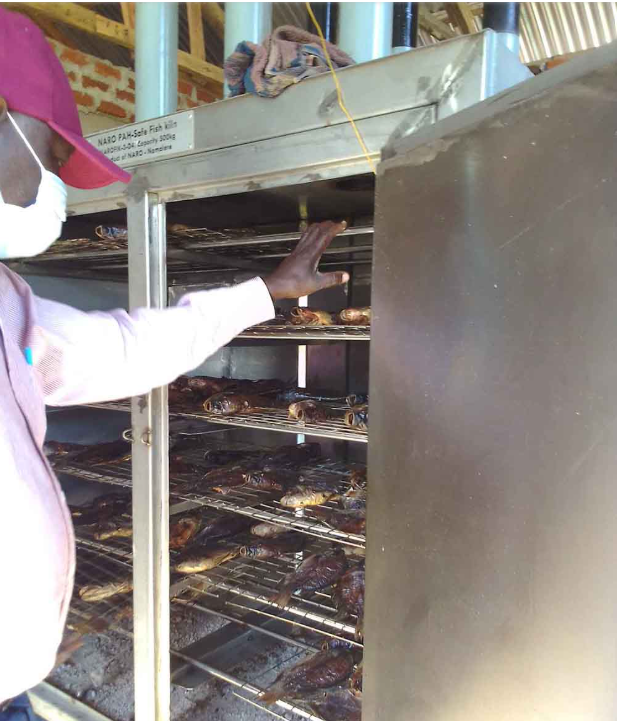The National Agricultural Research Organisation (NARO) in Uganda has pioneered a revolutionary fish smoking kiln that significantly reduces harmful polycyclic aromatic hydrocarbons (PAHs) and drying time, ensuring compliance with international quality standards for smoked fish. This cutting-edge technology is designed for industrial-scale fish processing, catering to growing demands in both local and export markets.
The kiln boasts several key features, including a PAH reduction system that lowers levels to below 2 parts per billion, meeting international standards and ensuring safer smoked fish. Its innovative design also reduces drying time from days to hours, improving processing efficiency and enabling fish processors to meet growing demands. The kiln’s uniform drying mechanism ensures high-quality, textured, and flavorful smoked fish products, enhancing marketability and appeal to health-conscious consumers.
Additionally, the kiln requires less firewood compared to traditional smoking methods, contributing to more sustainable fish processing practices and reduced environmental impact. Its enclosed design also minimizes exposure to smoke and potential respiratory problems for workers, creating a safer working environment.
The kiln offers numerous benefits, including enabling Uganda to export smoked fish to health-conscious markets like the European Union, improving fish quality and reducing processing time to increase prices and sales for fish processors. It also ensures the production of safer smoked fish, protecting consumers from potential health risks, and contributes to more sustainable fish processing practices.
The kiln primarily uses agricultural waste products like sawdust, rice bran, and palm kernel shell as a source of power, providing an alternative to charcoal. Some kilns also incorporate solar power, utilizing solar photovoltaic cells to power fans that circulate heat and smoke.
With costs ranging from Shs50 million for a 500kg capacity kiln to Shs70 million for a 700kg capacity kiln, this technological innovation has the potential to transform the fish processing industry. Its adoption can enhance the quality and safety of smoked fish products, increase income and livelihoods for fish processors, and promote sustainable production practices.
The development of this kiln addresses food safety concerns and the need for more efficient and sustainable fish processing methods in Uganda. By reducing toxic elements from 40,000 parts per billion to less than 1 part, the kiln ensures the production of safer smoked fish. Its design also promotes environmental conservation by reducing firewood usage and greenhouse gas emissions.
Overall, the NARO fish smoking kiln is a groundbreaking innovation that can have a significant impact on the fish processing industry, improving the lives of fish processors, consumers, and the environment.



